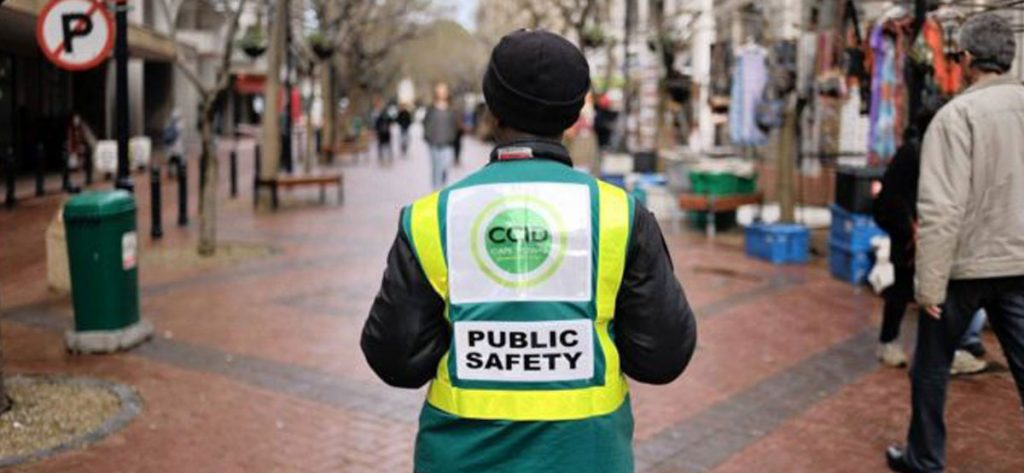 Public safety initiatives have been implemented in large cities to help curb crime | Credit: The CapeTowner
Public safety initiatives have been implemented in large cities to help curb crime | Credit: The CapeTowner
If you are planning on visiting South Africa, you may hear that South Africa is a beautiful country and that it is the most developed country in Africa or you may hear that it is one of the most dangerous countries in the world with a high crime rate and protests. Whilst both of these two scenarios may be true, they are extremes and it’s up to you to get some context so that it can guide your travel plans.
South Africa is a multi-racial and multilingual country with 11 official languages, not counting the unofficial languages of immigrants from other countries. English is the language used officially by the government and in most businesses but it is not everyone’s first language.
South Africa is also a country of mixed characteristics because of its dark history of Apartheid. It’s a land of stark contrasts between the haves and the have nots. In the same country exists both a first world country with first-world infrastructure and a third world poverty-stricken country. A majority of the poor are non-white previously disadvantaged people, and the rich are no longer only the rich white citizens but the new black elite. After Apartheid the black middle class has grown considerably, but a large majority of people are still poor living on minimum wage or below the poverty line.
This type of environment creates crime as there is a lack of jobs and often leads to xenophobic protests action as the locals feel that immigrants from other countries are taking the unskilled work opportunities.
Despite this South Africa is still a country filled with hope and it attracts tourists in their millions every year to its world-class cities such as Cape Town, voted the best city in the world for the 7th consecutive year by Telegraph readers.
Yes, South Africa has crime, but most of the crime happens within poor townships and low-income neighbourhoods, not around the popular tourist destinations. This is not saying crime does not happen outside of townships like anywhere else in the world you should take precautions which will be discussed later towards the end of this post.
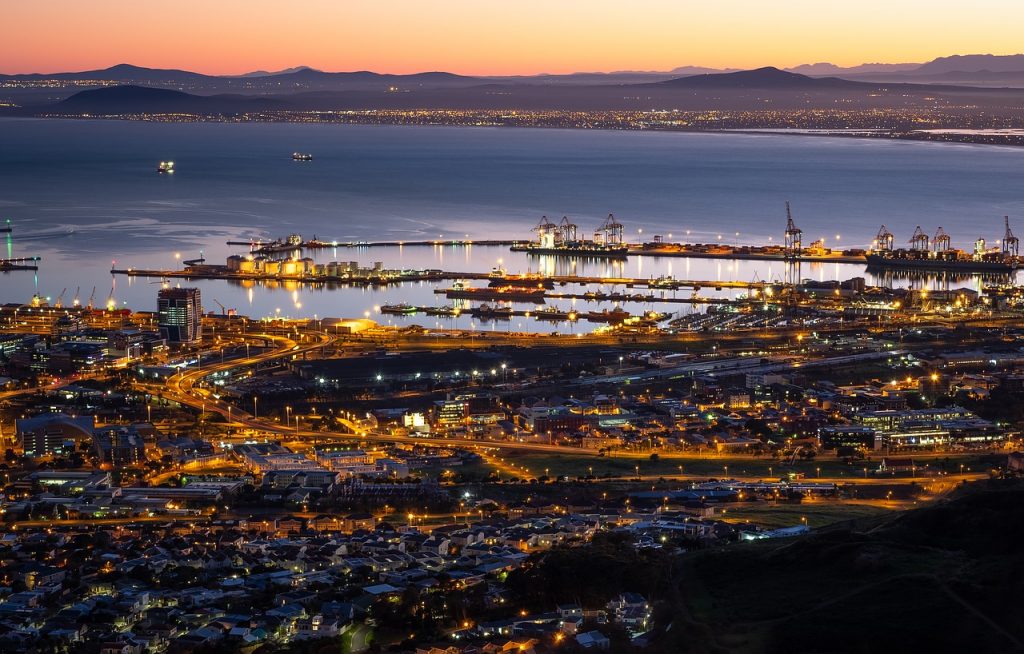
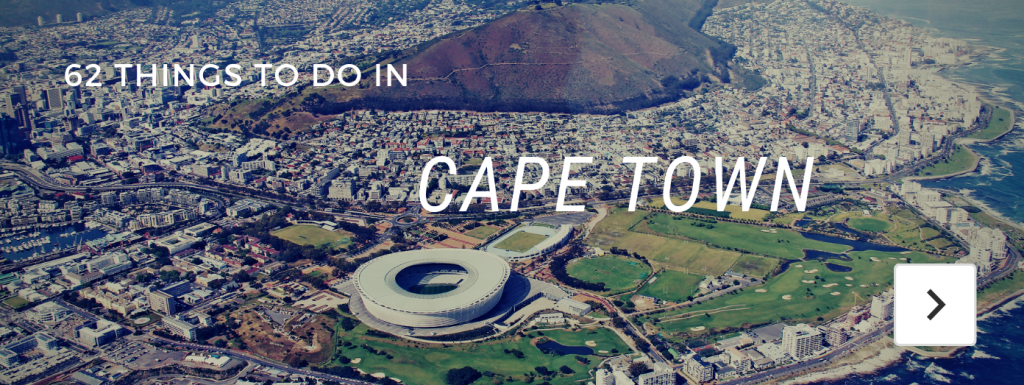 Is Johannesburg Safe?
Is Johannesburg Safe?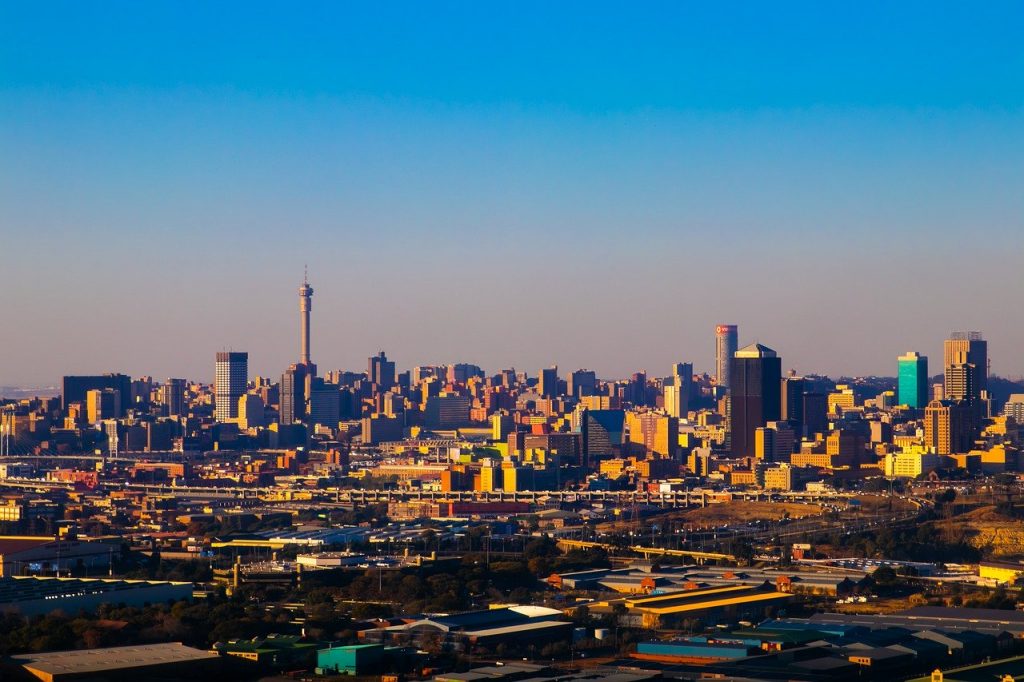
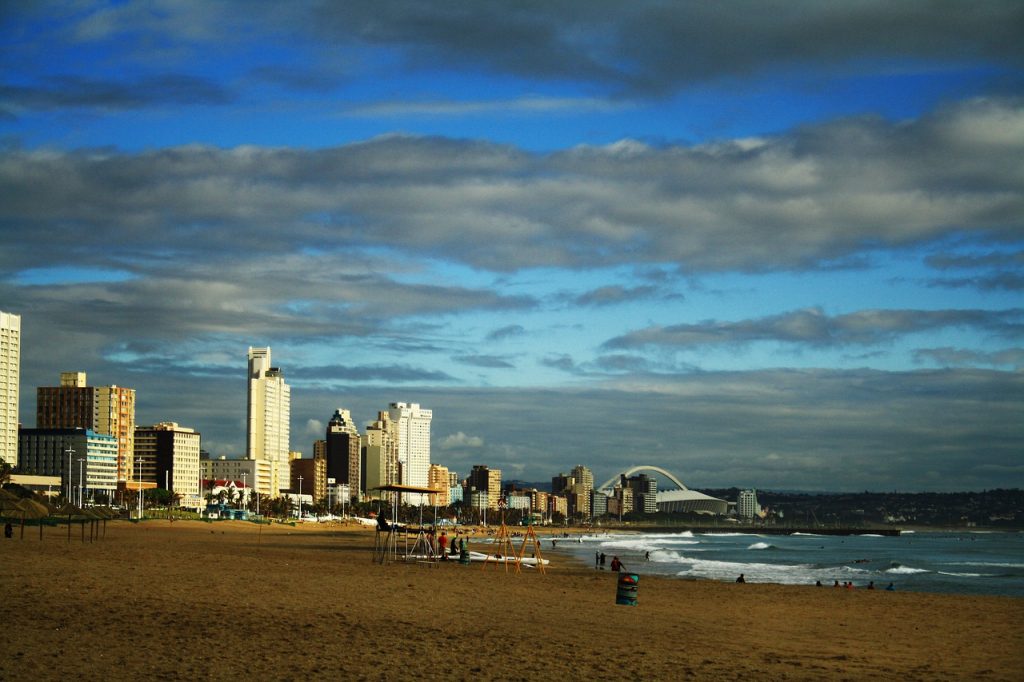
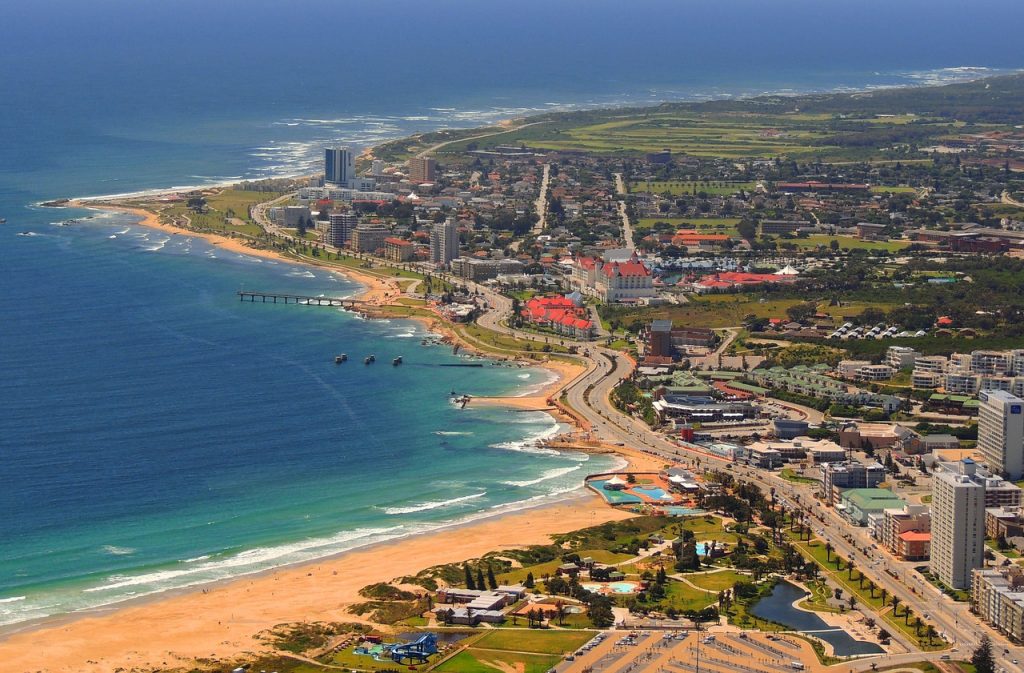
Port Elizabeth is rated as Africa’s safest city according to the Nelson Mandela bay website, however, according to Numbeos quality of life index which had safety as one of the metrics PE is safer than Durban, Pretoria and Johannesburg but less safe than Cape Town. You should still take sensible precautions wherever you are in South Africa.
Most of the crime happens in townships. There is extreme poverty in townships and it’s not advised that you go there alone as you will stand out and be an easy target. If you want to go to the township go with local friends or guides who know the area.
Most crime happens at night if you walk around when it’s dark you may make yourself a target for opportunistic criminals. As soon as you land in South Africa download a taxi hailing app such as Uber or Bolt, they are convenient and charge less than cabs. Alternatively, hire a car for the duration of your stay in South Africa.
Pick-pocketing is common in crowded areas and clubs. Do not get too drunk on a night out lest you want to wake up without a phone. Put your phone inside your jacket pocket and not your pant pockets as it’s easier for pick-pocketers to steal your phone from your pants pocket.
If you are isolated in a quiet street you make it easy for criminals to target you. Stick to busy streets with other people and where there is a security and police presence.
Criminals target people who hike alone in the early mornings because you are isolated and help is far away. Hike in groups and preferably with a guide.
The majority of people in South Africa are poor therefore avoid flaunting your wealth as it might make you a target.
There is a lot of credit card fraud and ATM fraud therefore always be vigilant whenever you are conducting transactions.
Every now and then you hear about a surfer who has been bitten by a shark. Our beaches have shark spotters to keep people safe, but you should still be careful by swimming near the shore and listening out for sirens and red flags.
Do not leave valuables in the car seat whether you are driving or leaving your car parked somewhere. This will attract criminals to break into your car. Always place valuables in the trunk of the car where they are not visible to anyone outside the car. Don’t drive around with your car unlocked just in case criminals try and force their way into yƒour car when you stop at traffic lights or in traffic.
Before leaving home scan all travel documents and email them to yourself and have them in your mobile device just in case your travel documents get lost or stolen
This may not deter a determined criminal but it may stop the opportunist from having easy access to your belongings at airports etc.